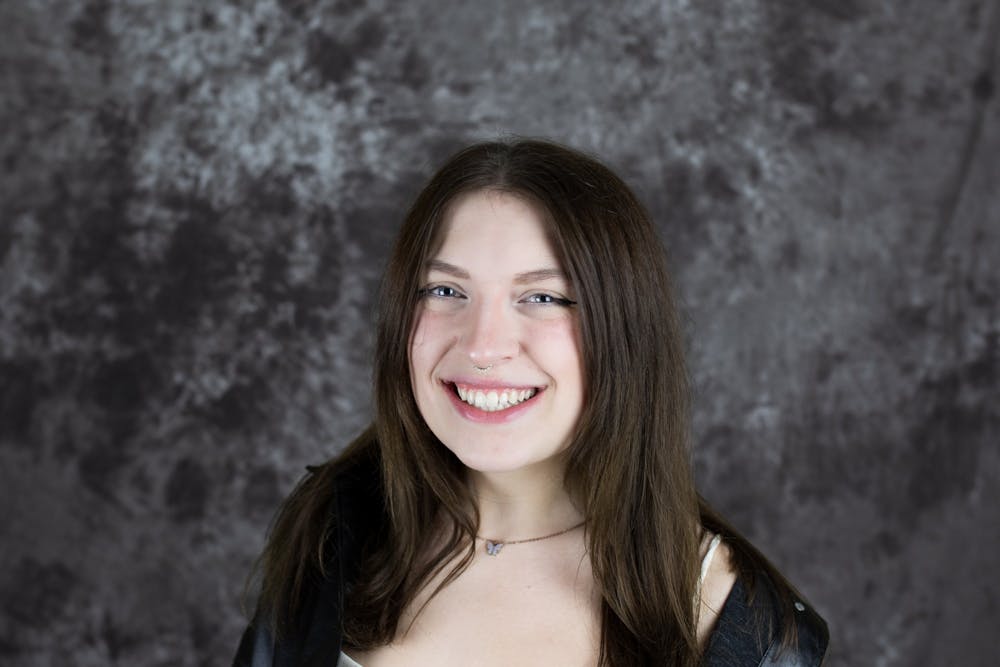As an avid sufferer of health anxiety, I was scrolling through my patient portal, meticulously checking my health history, when I stumbled upon a particularly funny note from a 2009 physical:
“PT’S [PATIENT’S] MOTHER STATES PT’S BEHAVIOR HAS NOT BEEN THE BEST LATELY AS PT HAS HARD TIME EXPRESSING HER ANGER IN A CONSTRUCTIVE WAY.”
I laughed when I first read this. My childhood temper tantrums, which both astonished and exhausted my parents, have become a running joke in my family. My stubbornness allowed for hours of tears and screaming over the smallest of inconveniences.
We laugh about it now, the way I rampaged and cried. But something coiled inside me when I read that comment, a rotten kind of guilt that has sat in the pit of my stomach for years.
I try to present myself as a good person. I put on smiles for friends and acquaintances; I FaceTime my friends when they’re having a bad day; I send out messages when someone I know has accomplished something great. People in my life have told me that I’m a good listener, a role model, a good friend.
And yet, I’m not always a good person who does good things. I certainly haven’t been in the past.
For as long as I can remember, I have harbored something shameful, something ugly and something entirely human in the deepest recesses of my heart. It comes out in cruel and sharp words, in passive-aggressive communication with friends and in an all-encompassing selfishness that I can never seem to truly shake.
No one can be a perfect person, I know that. But for many years I’m not sure I was even a good one — I’m working to change that. I’m working every day to do better — to be better.
My freshman year of college, I obliterated almost all the new friendships I made. I chose actions that hurt people, made ridiculously hollow apologies for those actions and rarely put others before myself, even when they deserved it.
I was stuck in this bubble of inconsequence, unable and unwilling to see the world outside of myself. I took the love people gave me, the patience, the kindness, the forgiveness — and I didn’t often return it.
I am a black hole of a person sometimes — consuming and unforgiving.
I can be more.
I can be good.
I’m able to pinpoint the exact moment I realized a change needed to be made: When one of my best friends sat me down and told me I didn’t make her feel like a best friend.
It was hard to hear. Put yourself in my shoes: One of the people you value most in life is sitting in front of you, and you realize that your actions, your attention only to yourself, has turned a sturdy rope of friendship into a fraying and fragile thread.
There exists a special kind of grief and guilt for when you see just how much you have hurt the people you are meant to love most and how long you’ve been doing it for.
I had to hold myself accountable, and not without help.
There’s a phrase that I consider more than corny: “Hurt people hurt people.”
But it’s true. I have struggled a lot in my life — with mental illness, family tragedies and self-esteem issues. For years, I stuffed the feelings down, down, down where they could fester and turn darker, until they couldn’t be pushed away anymore. Until they bubbled up and made me take out my own pain on everyone else.
I started going to therapy and taking an antidepressant. I began taking time to contemplate the ways my family and friends supported me and how I could return their support.
From making sure I’m not dumping all my issues on my friends, to lending a hand or an ear to my family, to biting back the first cruel words on my tongue, every day has become a conscious choice.
There are times when I make the wrong choice. It’s hard not to let the guilt eat me alive in the clarity that follows, to not let the fear that I am slipping back into a person I no longer want to be seize my nerves.
But wallowing in this anxiety — letting it consume me — is not productive. I can’t continue to be better if I am stuck in this paralysis.
Learning to forgive yourself, to allow yourself to make mistakes, is all a part of growth. It’s probably one of the most difficult parts, at least for myself.
The whole process of learning to be better is hard.
And I really am trying.
Kara Anderson is a senior arts editor and can be reached at kara.anderson@ubspectrum.com

Kara Anderson is a senior arts editor at The Spectrum. She is an English and Spanish double major and is pursuing a certificate in creative writing. She enjoys baking chocolate chip cookies, procrastinating with solitaire and binging reality TV on the weekends.





